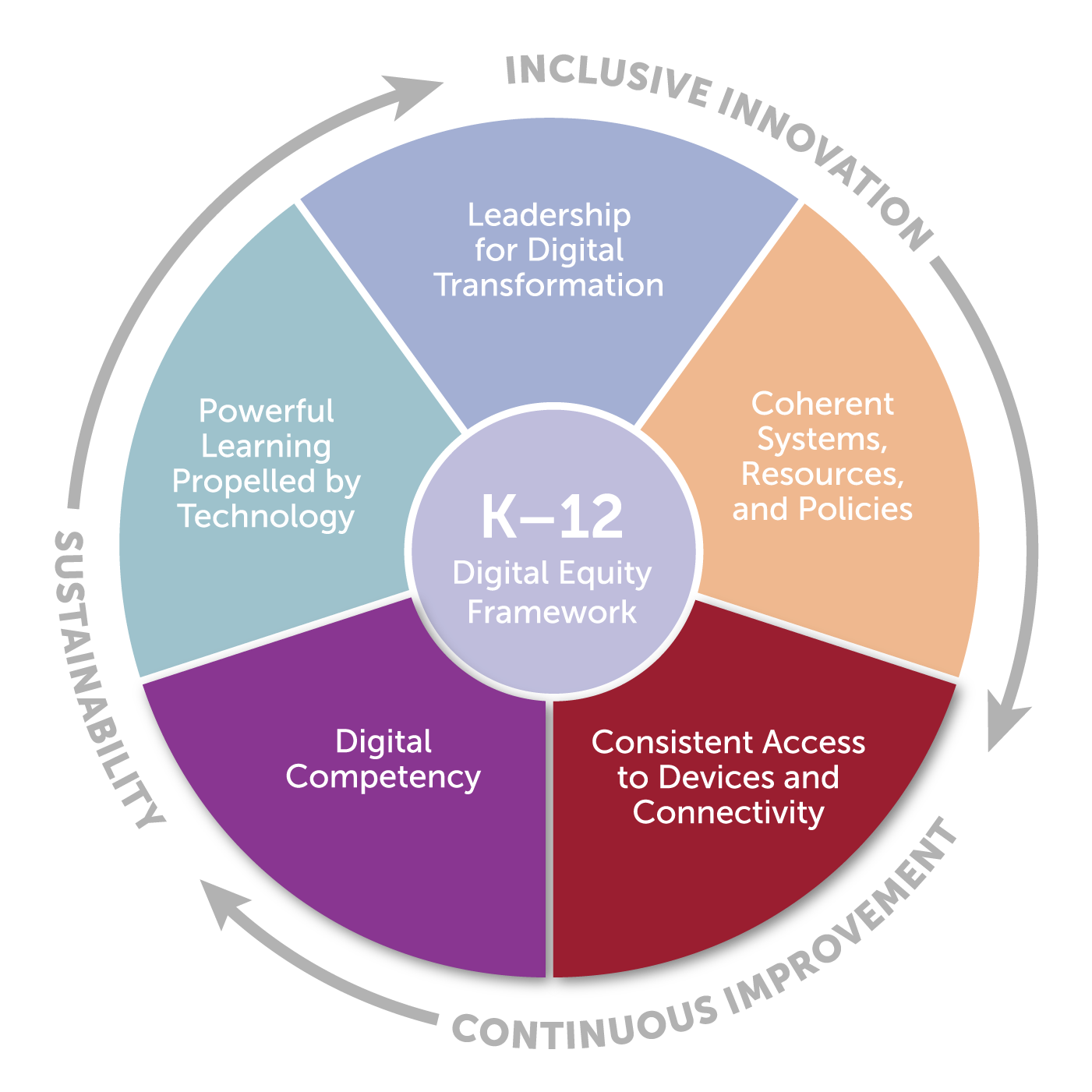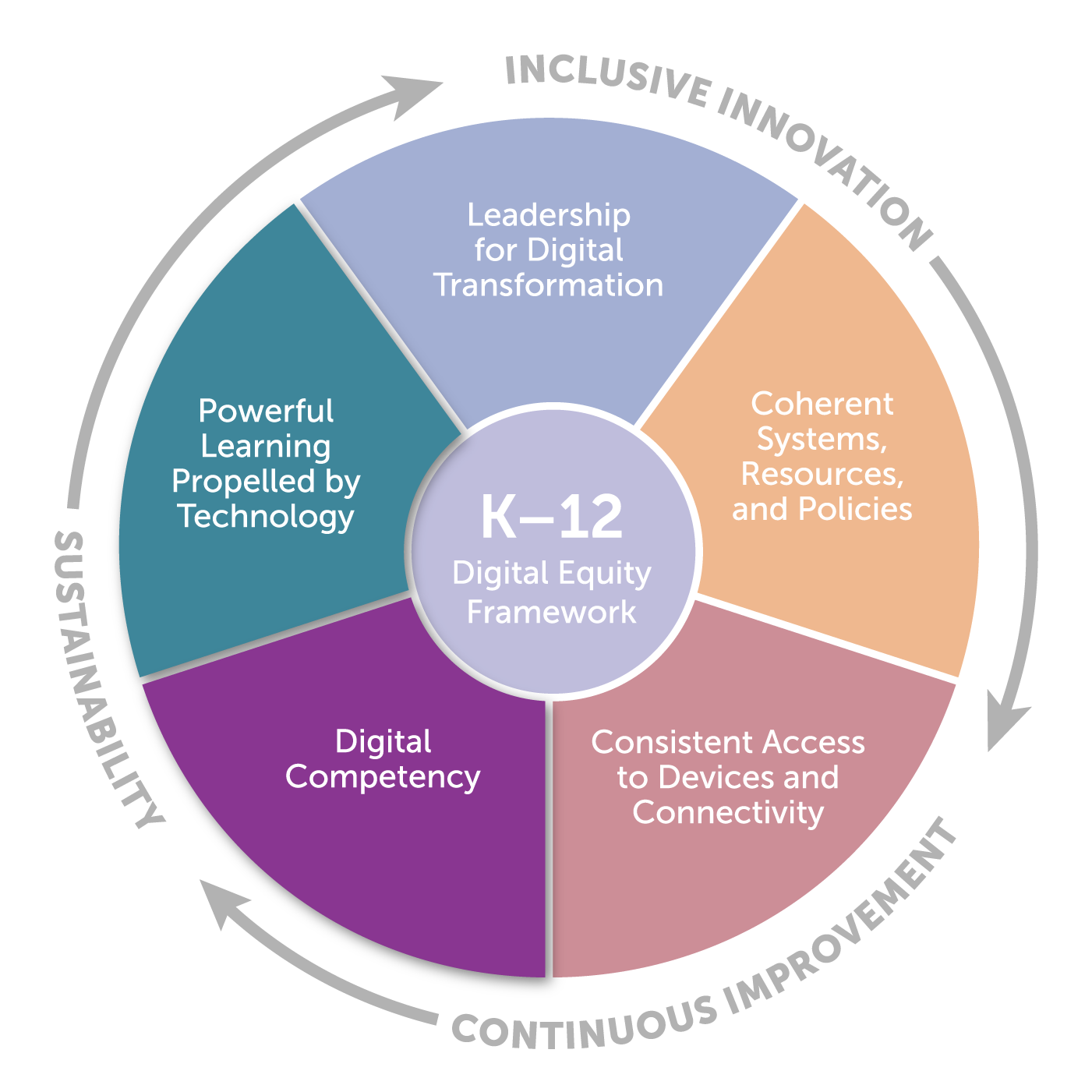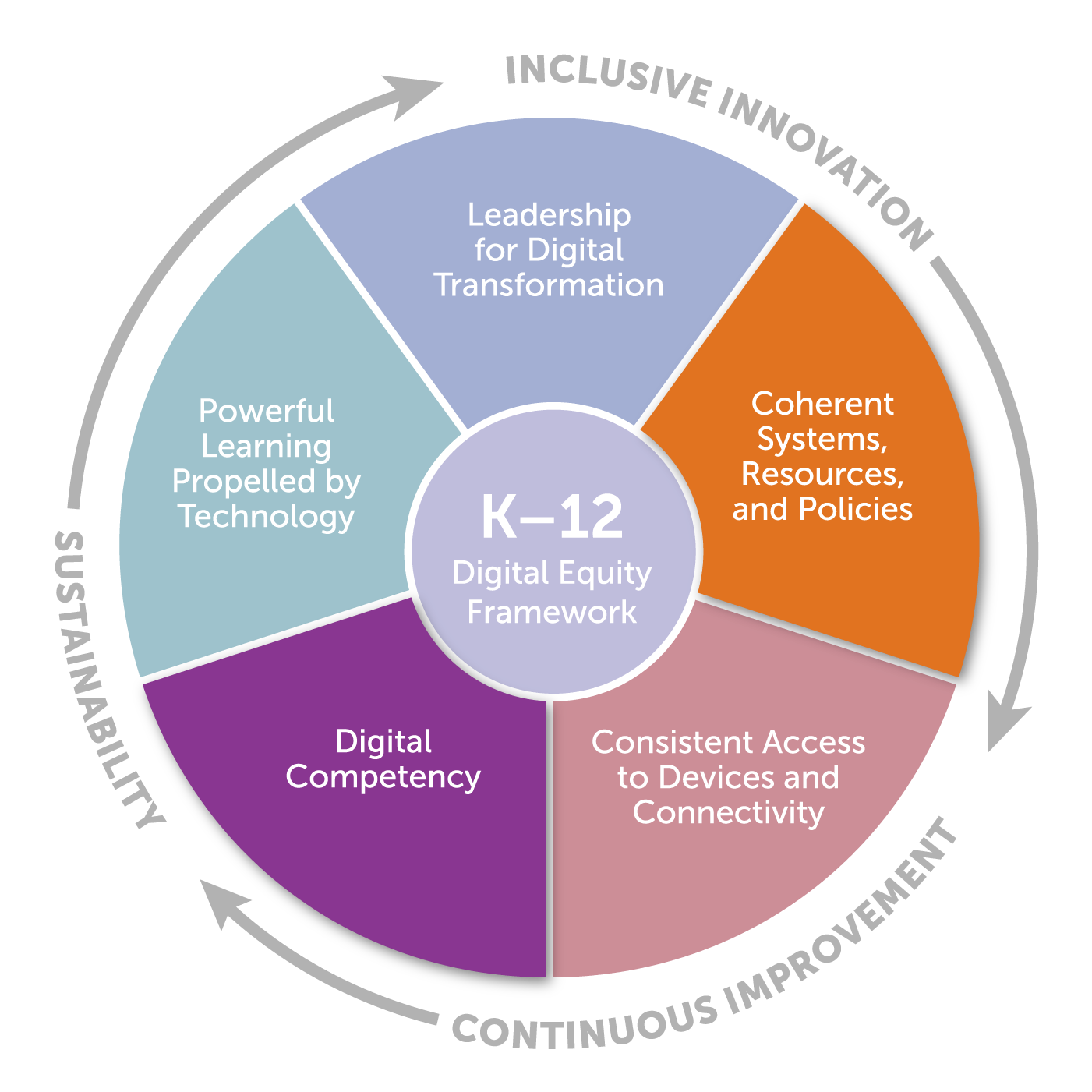Digital Competency refers to the development of digital skills, mindsets, dispositions, and/or behaviors essential for learners’, educators’, and all people’s effective use of technology for full participation in a digitally driven society. The competencies enable individuals to lead, educate, learn, navigate, communicate, and utilize current and emerging technologies in various aspects of their personal, academic and professional lives.

Learners, staff, and families describe having access to comprehensive digital literacy training and support, ensuring the development of essential skills, mindsets, and behaviors needed for full participation in a digitally driven society, as evidenced by:
Professional development offerings are collaboratively designed with diverse educators to effectively build capacity in integrating technology for equitable, learner-centered experiences. These offerings incorporate Universal Design for Learning (UDL) principles to ensure educators are equipped to create inclusive, accessible, and engaging environments that accommodate all learners’ needs, as shown by:
Educators strategically select and integrate digital tools that support diverse learning needs, promote creativity and collaboration, and enhance student engagement and achievement, as shown by:
Educators, coaches, and leaders model and teach responsible, ethical, and safe use of technology, empowering learners to become digital leaders and positive change agents in their communities, as evidenced by:
States and districts, as primary purchasers, ensure that learners have equitable access to a wide range of high-quality digital resources that support their individual learning needs, interests, and goals, as demonstrated by:
The district or network culture fosters a growth mindset toward technology, encouraging learners and staff to embrace challenges, learn from failures, and continuously improve their digital skills and knowledge, as shown by:
To prepare teachers for meaningful technology integration, the learning lab teacher led professional development sessions and provided one-on-one support. This approach ensured teachers acquired the necessary knowledge, skills, and confidence to utilize advanced tools like virtual reality, augmented reality, and 3D printers.
| Component | Teacher | Coach | Leader |
|---|---|---|---|
|
Leadership for Digital Equity |
|
|
|
|
Mindsets for Digital Equity and the Learning Environment |
|
|
|
| Component |
Leadership for Digital Equity |
|---|---|
| Teacher |
|
| Coach |
|
| Leader |
|
| Component |
Mindsets for Digital Equity and the Learning Environment |
| Teacher |
|
| Coach |
|
| Leader |
|
| Component | Teacher | Coach | Leader |
|---|---|---|---|
|
Conditions for Cultivating Coherence |
|
|
|
|
Professional Learning and Community Networks |
|
|
|
|
Tech-Enabled Assessment and Data Analysis |
|
|
|
| Component |
Conditions for Cultivating Coherence |
|---|---|
| Teacher |
|
| Coach |
|
| Leader |
|
| Component |
Professional Learning and Community Networks |
| Teacher |
|
| Coach |
|
| Leader |
|
| Component |
Tech-Enabled Assessment and Data Analysis |
| Teacher |
|
| Coach |
|
| Leader |
|
| Component | Teacher | Coach | Leader |
|---|---|---|---|
|
Technical Skills and Managing Technology |
|
|
|
|
Information Literacy and Digital Citizenship |
|
|
|
| Component |
Technical Skills and Managing Technology |
|---|---|
| Teacher |
|
| Coach |
|
| Leader |
|
| Component |
Information Literacy and Digital Citizenship |
| Teacher |
|
| Coach |
|
| Leader |
|
| Component | Teacher | Coach | Leader |
|---|---|---|---|
|
Learner-Centered Pedagogy |
|
|
|
| Component |
Learner-Centered Pedagogy |
|---|---|
| Teacher |
|
| Coach |
|
| Leader |
|
 Digital Competency and…
Digital Competency and…Consistent access to devices and connectivity is a prerequisite for developing digital competencies among learners, educators, and all stakeholders.
As individuals gain digital competencies, they are better equipped to leverage the available devices and connectivity for powerful learning experiences and personal, academic, and professional growth.
 Powerful Learning Propelled by Technology
Powerful Learning Propelled by TechnologyDigital competencies enable learners and educators to effectively utilize emerging technologies, digital resources, and tools to create engaging and relevant learning experiences.
Powerful learning experiences propelled by technology, in turn, help develop and reinforce digital competencies, preparing individuals for success in a digitally driven society.
 Coherent Systems, Resources, and Policies
Coherent Systems, Resources, and PoliciesCoherent systems, resources, and policies can facilitate the development of digital competencies by providing the necessary support, resources, and opportunities for learning and growth.
As stakeholders develop digital competencies, they are better equipped to contribute to the development and implementation of coherent systems, resources, and policies that support digital equity.